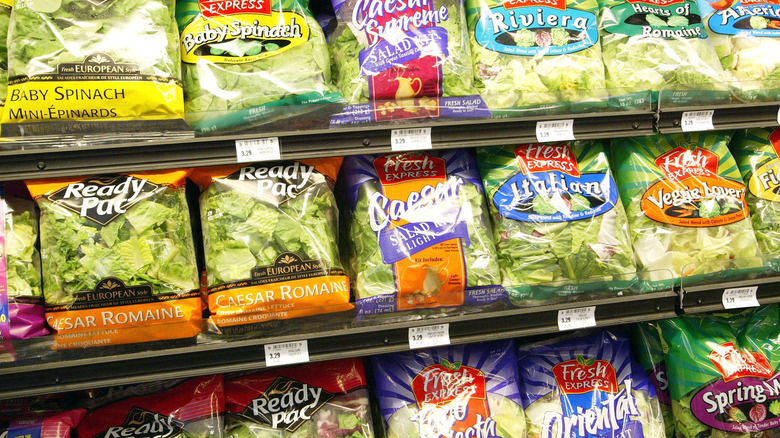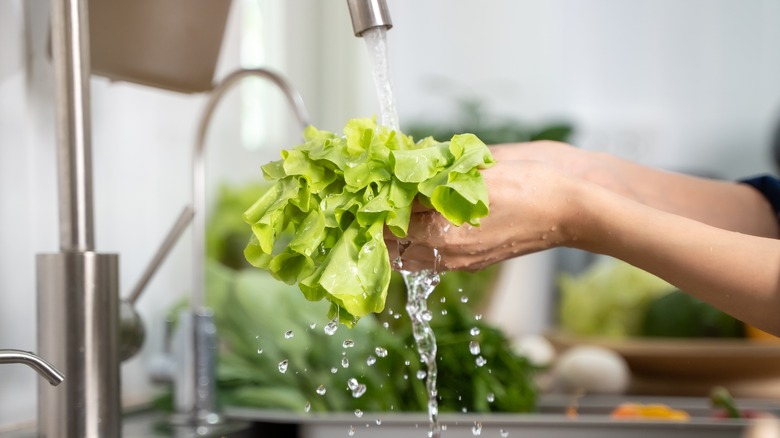You Never Need To Wash Your Pre-Bagged Produce. Here's Why
The whole point of grabbing prebagged produce instead of a whole head of lettuce or intact veggies is convenience. Bagged produce is meant to eliminate the cutting, sorting, and cleaning of popular items like spinach, lettuce, salad mix, spring mix, carrots, and string beans.
However, there are many people who feel that all produce needs to be washed, especially when they notice supermarket workers spraying veggies. In grocery stores, fruits and vegetables are sprayed down daily to keep them looking fresh and edible. Typically, simple water is sprayed on produce to keep it moist which, in turn, keeps it sellable. Many believe that the entire reason for spraying vegetables in the grocery store is to make them look appealing so they will be bought and not for any health purposes (via Taste of Home). Interestingly, since produce is often priced according to weight when water clings to the produce, it makes it heavier and stores make more money.
Once veggies and fruit are disconnected from their main growing sources, such as a tree or deep roots, they can easily dry out and start the dying process (via Science ABC). Once they appear brown or limp, there is little chance of being bought.
Yet many wonder what happens in the case of bagged produce and whether it requires the same level of washing.
Official guidance on washing bagged produce
The Food and Drug Administration advises that all produce that is not bagged undergo a thorough rinsing with water to remove any dirt and bacteria. For thick peel produce, like cucumbers and melons, they recommend using a brush to scrub off residue so when you cut into the product it won't transfer bacteria or dirt into the flesh that you'll be eating.
Yet when it comes to bagged produce, they have different guidelines. The FDA says there is no reason to wash bagged produce. Their reasoning is that bagged produce that states on the bag that it is prewashed or ready-to-eat has already undergone the washing process and should be considered clean.
There's also a slight chance that washing it again can lead to unnecessary exposure to cross-contamination in your kitchen (via Insider), so if the vegetables are already deemed safe to eat, there's no need to do it again.
Eat cut-up veggies promptly
According to Cleveland Clinic, vegetables that are cut up can spoil quicker. Once exposed to oxygen, vegetables begin to break down. They also lose much of the vitamin content and aren't as fresh. For that reason, bagged produce should be eaten in 5-6 days to avoid spoiling.
One way to figure out if a veggie is on its way out is to look for white spots, which show that moisture has escaped. This means it's beginning the breakdown process, and vitamins and other nutrients are rapidly dwindling.
Packaging vegetables actually helps produce keep its moisture more than if left loose in grocery store bins. In addition, prepackaged foods lend themselves to be less contaminated by the hands of random shoppers (via Delishably). Anyone who has been in the produce aisle for even a little bit will find consumers squeezing and grabbing random produce, and then putting it back and not buying, leaving it for the next person to purchase.


